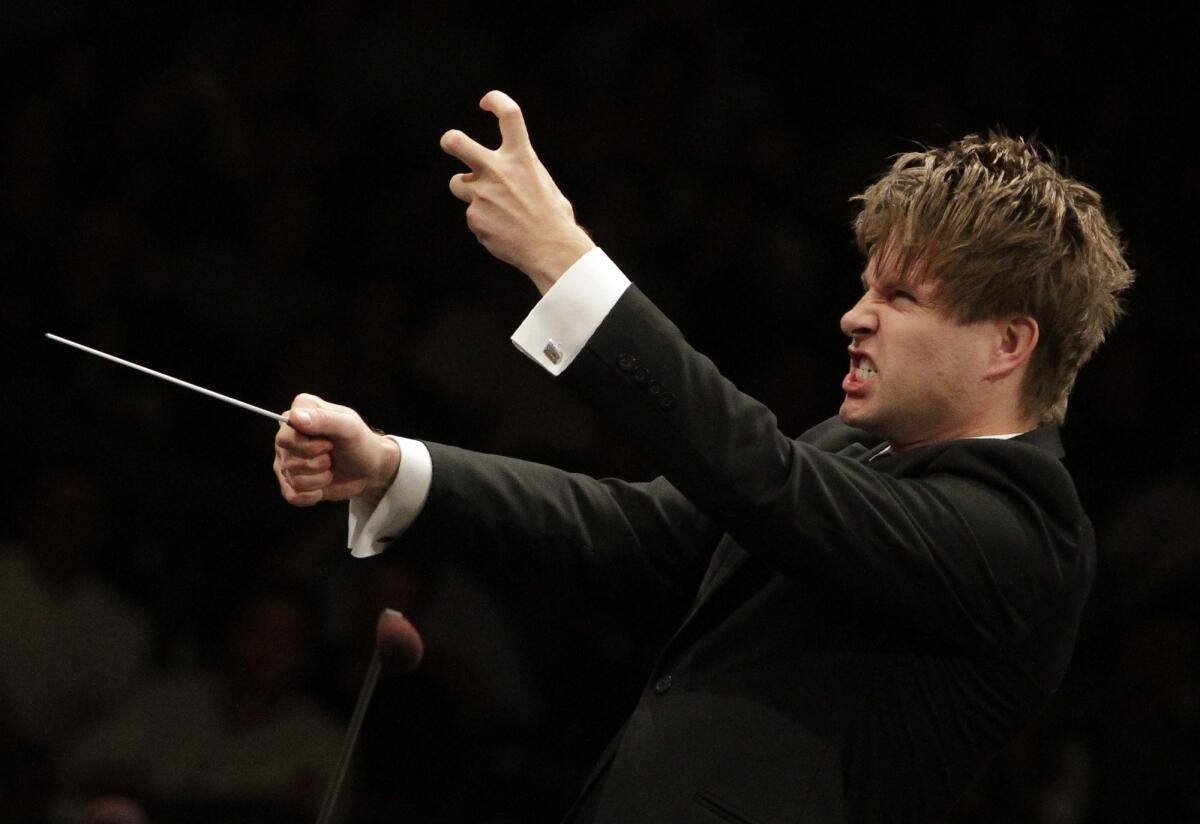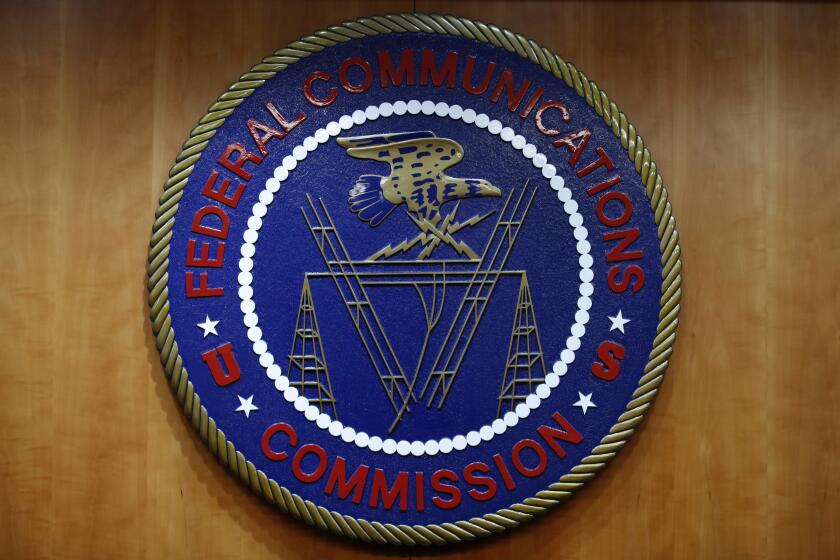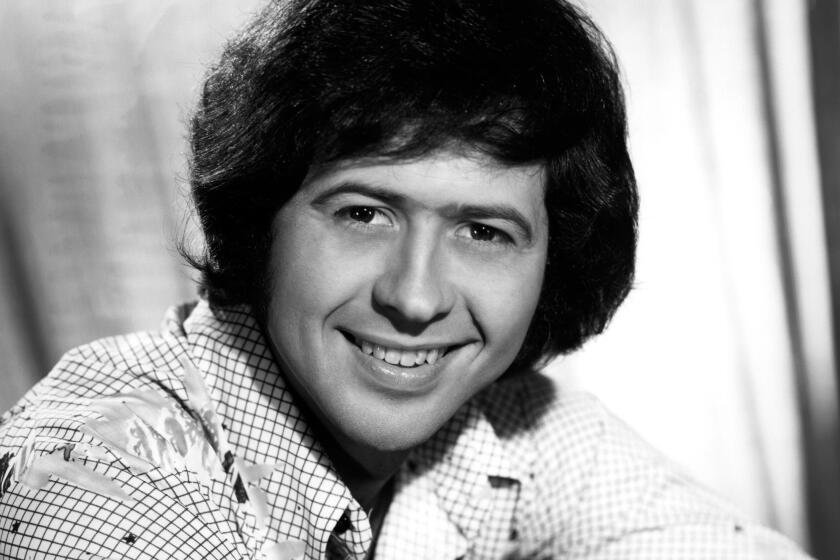Music review: A tale of two Polands by the L.A. Philharmonic

Krzysztof Urbanski, the rising young Polish conductor of the Indianapolis Symphony, returned Saturday night to the Los Angeles Philharmonic, seemingly bent upon showing how polarized Polish music can be.
It would be hard to come up with a more diametrically opposed first-half program than leading off with Wojciech Kilar’s wonderfully noisy “Krzesany” and following up with Chopin’s poetic Piano Concerto No. 2.
Kilar — who died at 81 on Dec. 29 — may be an unfamiliar name around Walt Disney Concert Hall, but he probably shouldn’t be in this city, having scored films for Roman Polanski and Francis Ford Coppola. Actually, Kilar’s career trajectory closely parallels those of his contemporaries Henryk Górecki and Krzysztof Penderecki, all of whom started out on the edge and then gravitated to more tonal, less abrasive, if distinctly diverse, musical languages in the 1970s.
CRITICS’ PICKS: What to watch, where to go, what to eat
“Krzesany” (1974) seems to catch Kilar on the cusp of his conversion, with acerbic masses of strings and wild whirlwinds of sound juxtaposed with rumbling folk-like dances, all coming to a deliriously all-out chaotic head at the close.
This was the 15-minute piece’s belated West Coast premiere — and with the dynamic advocacy of the 31-year-old Urbanski (who conducted it from memory) leading the way, hopefully this will not be the last we will hear of it.
Then, as if to say “on the other hand,” came Chopin as entrusted to the 26-year-old Georgian pianist Khatia Buniatishvili, who played the concerto with a delicate, languid touch almost as if in a trance. She produced a luscious collection of colorations that sometimes melted into inaudibility and drift, thus blurring the line. She could produce some power when needed, yet this performance was mostly directed inward.
Last in the lineup, and just across the border in the old Soviet Union, was Prokofiev’s Symphony No. 5, with which Urbanski does just about everything right. Every movement was well-paced, with crunching climaxes, plenty of detail, and enough of an electric charge to give you a nice buzz heading out of the hall.
More to Read
The biggest entertainment stories
Get our big stories about Hollywood, film, television, music, arts, culture and more right in your inbox as soon as they publish.
You may occasionally receive promotional content from the Los Angeles Times.










